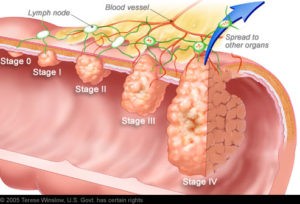
Diagnosed with Cancer? Your two greatest challenges are understanding cancer and understanding possible side effects from chemo and radiation. Knowledge is Power!
Learn about conventional, complementary, and integrative therapies.
Dealing with treatment side effects? Learn about evidence-based therapies to alleviate your symptoms.
Click the orange button to the right to learn more.
- You are here:
- Home »
- Blog »
- Healthy Living Products »
- Magnesium Reduces Colorectal Cancer Risk Occurrence, Relapse?
Magnesium Reduces Colorectal Cancer Risk Occurrence, Relapse?

Several studies have demonstrated an association between high magnesium intake and reduced risk of colorectal cancer (CRC).
It’s not rocket science. It’s not mega-dosing. The article linked and excerpted below cites multiple studies demonstrating that magnesium intake helps a person with brain, heart and muscle functions in addition to reducing your risk of both colorectal and pancreatic cancer.
I wish I knew then what I know now. If I had supplemented with magnesium I may not have sustained the brain, heart and nerve damage caused by high-dose, aggressive chemotherapy that my oncologist prescribed as my cancer therapy. I supplement with magneseum now to support brain, heart and nerve function.
A close friend of mine was diagnosed with stage 3 colorectal cancer in 2015. Nutrition, supplementation and lifestyle therapies are helping her reduce her risk of relapse.
I am both a long-term cancer survivor and cancer coach. Have you been diagnosed with colorectal cancer? What stage? Please scroll down the page, post a question or comment and I will reply to you ASAP.
Thank you,
David Emerson
- Cancer Survivor
- Cancer Coach
- Director PeopleBeatingCancer
Vitamin D, magnesium, calcium, and their interaction in relation to colorectal cancer recurrence and all-cause mortality
“Background- Higher concentrations of 25-hydroxyvitamin D3 [25(OH)D3] at diagnosis are associated with a lower mortality risk in colorectal cancer (CRC) patients. However, magnesium and calcium are important in vitamin D metabolism…
Magnesium and Cancer
“Magnesium is a critical mineral that is involved in over 600 enzymatic reactions, including those important for brain, heart, and skeletal muscle functions.1Interestingly, about 60% of Americans are deficient in magnesium, including up to 60% of patients who are critically ill.
In regard to cancer, magnesium intake has been associated with the incidence of some cancers and has been studied as a protective agent against chemotherapy-induced nephrotoxicity and neurotoxicity.
Cancer Risk-
Colorectal Cancer-
Several studies have demonstrated an association between high magnesium intake and reduced risk of colorectal cancer (CRC)…
A case-control study evaluated 2204 subjects from the Tennessee Colorectal Polyp Study, which demonstrated that (highest tertile increasing total magnesium intake was significantly associated with decreasing risk of CRC odds ratio…
A study of 140,601 postmenopausal women from the Women’s Health Initiative with an mean follow-up of 13 years demonstrated a significant reduction in CRC risk with the highest quintile of total magnesium intake compared with the lowest quintile of magnesium intake…
Another study, however, found no association between magnesium intake and incidence of CRC.
Nephrotoxicity
Several studies have demonstrated that magnesium administered during chemotherapy treatment has a protective effect against nephrotoxicity.
A study of 85 patients with lung cancer receiving cisplatin-based chemotherapy received high or low volume hydration with magnesium or high volume hydration without magnesium.8 The group that did not receive magnesium demonstrated a significant increase in serum creatinine and significant decrease in creatinine clearance compared with baseline. There was no difference in serum creatinine or creatinine clearance compared with baseline for patients who received high volume hydration with magnesium, and a trend toward increased serum creatinine and decreased creatinine clearance in the group that receive low volume hydration with magnesium.
Another prospective cohort study of 74 patients receiving cisplatin-based therapy for gynecologic cancer also demonstrated that prehydration with magnesium sulfate resulted in lower rates of moderate renal dysfunction classified as “risk” compared with patients who received prehydration without magnesium.10
Neurotoxicity
Several studies have evaluated the effect of calcium and magnesium infusions on oxaliplatin-induced neuropathy, which were summarized in a systematic review published in 2016.11
The systematic review included 694 evaluable patients from 5 different trials. Results from pooled data demonstrated no significant difference in grade 2 or higher neuropathy between the patients who received calcium magnesium or controls.
Conclusions
Epidemiologic studies suggest that total magnesium intake may reduce the risk of CRC and pancreatic cancer.
Several studies, including a randomized controlled trial, suggest that prehydration with magnesium or magnesium supplementation is protective against cisplatin-induced nephrotoxicity. Magnesium in addition to calcium, however, does not appear to be protective against chemotherapy-induced neurotoxicity.”


